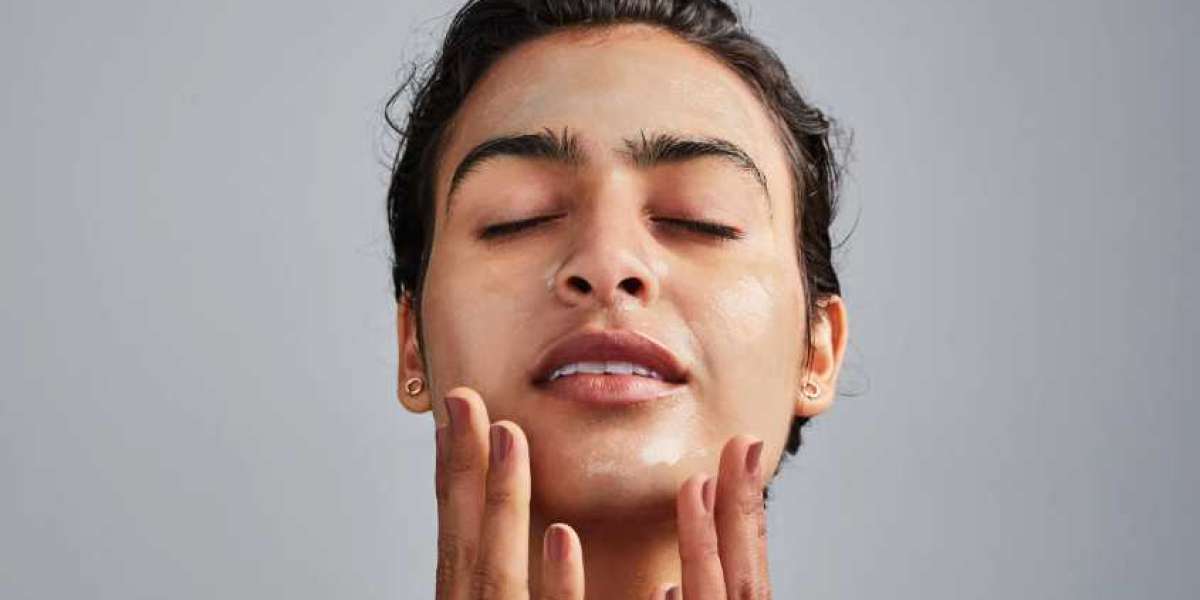For acne-prone skin, a balanced skincare routine that targets breakouts, reduces inflammation, and maintains skin health is crucial. The key is to use products that effectively treat acne while also keeping your skin hydrated and protected from irritation. Here's an essential daily skincare routine tailored to acne-prone skin:
1. Gentle Cleanser (Morning Night)
Why: A gentle yet effective cleanser removes dirt, excess oil, and bacteria that contribute to acne. Harsh cleansers can strip your skin and trigger excess oil production, leading to more breakouts.
- Tip: Look for a sulfate-free, non-comedogenic cleanser with ingredients like salicylic acid (BHA), benzoyl peroxide, or tea tree oil. These ingredients help prevent clogged pores and treat acne.
- How: Use lukewarm water to cleanse your face for 30 seconds to 1 minute. Avoid scrubbing, as it can irritate acne-prone skin.
2. Acne Treatment (Serum or Spot Treatment) (Optional, After Cleansing)
Why: Targeted treatments can help reduce active breakouts and prevent future ones by addressing specific acne causes, such as clogged pores or inflammation.
- Tip: If you have active acne, use a serum or treatment with benzoyl peroxide, salicylic acid, retinol, or niacinamide. These ingredients can help kill acne-causing bacteria, reduce inflammation, and promote skin turnover.
- How: Apply a thin layer directly to the affected areas or to your entire face (if the serum is intended for all-over use). Start with a lower concentration of active ingredients to avoid irritation.
3. Hydrating Toner (Optional)
Why: A toner helps to balance the skin's pH after cleansing and can provide additional hydration, which is important for acne-prone skin that may become dry from acne treatments.
- Tip: Choose a hydrating, alcohol-free toner with soothing ingredients like witch hazel, rose water, or aloe vera. Avoid toners with astringents that can be too harsh.
- How: Apply with a cotton pad or press it into your skin using your hands. Focus on areas that tend to be drier or irritated.
4. Moisturizer (Morning Night)
Why: Even acne-prone skin needs hydration. Proper moisture helps to maintain the skin’s barrier and prevents over-drying, which can lead to increased oil production and more breakouts.
- Tip: Look for an oil-free, non-comedogenic moisturizer that won’t clog pores. Gel-based or lightweight moisturizers are ideal for acne-prone skin. Ingredients like hyaluronic acid and ceramides help hydrate without causing breakouts.
- How: Apply a small amount to your face and neck, gently massaging it in.
5. Sunscreen (Morning Only)
Why: Sunscreen is essential to protect acne-prone skin from harmful UV rays, which can cause hyperpigmentation and post-inflammatory scars from past breakouts. Some acne treatments, like retinol or benzoyl peroxide, can make skin more sensitive to the sun.
- Tip: Choose a broad-spectrum sunscreen with SPF 30 or higher that’s labeled "non-comedogenic" to avoid clogging pores. Mineral sunscreens with zinc oxide or titanium dioxide are often gentler on acne-prone skin.
- How: Apply generously to your face and neck every morning, even on cloudy days.
Evening Routine
Your evening routine can be slightly more focused on treatment and repair. You can follow a similar routine but without the sunscreen:
- Gentle Cleanser
- Acne Treatment Serum/Spot Treatment
- Hydrating Toner (optional)
- Moisturizer
Additional Tips for Acne-Prone Skin:
- Avoid Over-Treating: While acne treatments are important, too much can cause irritation and dryness, which can worsen breakouts. Stick to a routine and gradually introduce stronger actives if needed.
- Be Consistent: Acne treatment takes time. It’s important to be consistent with your routine, but avoid switching products frequently, as this can disrupt the skin’s healing process.
- Don’t Pick or Squeeze Pimples: This can spread bacteria and cause scarring. Let acne treatments do their job.
- Keep Skin Hydrated: Dehydrated skin can overcompensate by producing excess oil, leading to more breakouts. Always hydrate with non-comedogenic moisturizers.
- Limit Harsh Exfoliation: Avoid abrasive scrubs. Use chemical exfoliants like salicylic acid or lactic acid 1-2 times a week, but don’t over-exfoliate, as it can irritate the skin.
Example Acne-Prone Skin Routine:
Morning:
- Gentle Cleanser
- Acne Treatment Serum/Spot Treatment (if needed)
- Hydrating Toner (optional)
- Moisturizer
- Sunscreen
Evening:
- Gentle Cleanser
- Acne Treatment Serum/Spot Treatment
- Hydrating Toner (optional)
- Moisturizer
By following this acne-prone skin routine, you can help prevent breakouts while maintaining a balanced, hydrated complexion. The key is consistency and using the right products that address your skin’s unique needs without overloading it with harsh treatments.
https://trendybeauti.ae/








